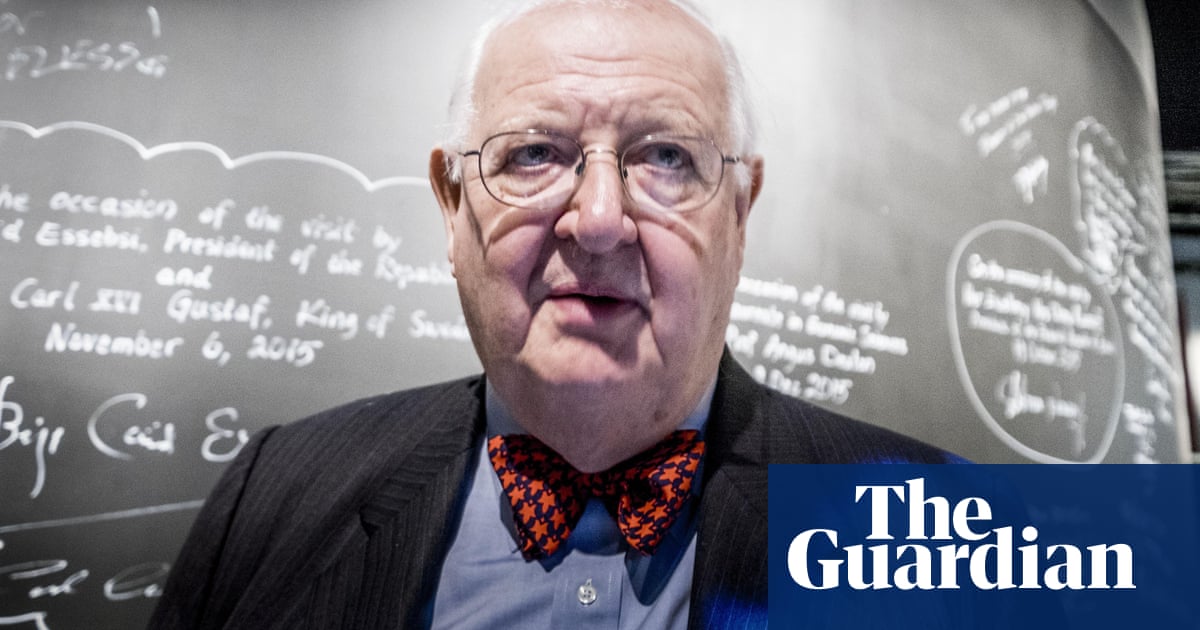
ith 365 Conservative MPs in the Commons, it’s understandable that some of them, especially those who are relatively new to Westminster, are looking for something to help them stand out from the crowd.
In the Theresa May years it was easy: declare yourself a member of the European Research Group (ERG) and you’d be whisked to a television studio before you could say “chuck Chequers” or “bin the backstop”. But after Boris Johnson won an 80-seat majority to get Brexit done, things have got a bit harder.
True, there’s now the Northern Research Group (NRG) and the Covid Recovery Group (CRG) but the trouble is neither of them have yet shown much sign of worrying the whips, so simply belonging to one of them isn’t enough to get you a few minutes on Newsnight, let alone Good Morning Britain.
Cue the formation last summer of the ultra-traditionalist Common Sense Group. It has been set up by veteran MP John Hayes, who, back in the summer of 2005, helped found the Cornerstone Group (motto: “Faith, Flag and Family”) in the belief that “the next Conservative leader must mount a counter-offensive in the culture wars against rampant liberalism”.
David Cameron may have dashed those hopes, but Hayes and his erstwhile colleagues were clearly clairvoyant. A decade-and-a-half later, he and the 60 or so MPs who have gravitated to his new group can now claim to be at the cutting edge of the Johnson government’s “war on woke”.
So what better way to get themselves and their credo taken seriously than to put together a book? After all, it worked for the authors of 2012’s Britannia Unchained – the ne plus ultra of 21st-century Thatcher fan-fiction. The fact that four of the five (Kwasi Kwarteng, Priti Patel, Dominic Raab, and Liz Truss) are now cabinet ministers must surely mean something, right?
Well, maybe. But the idea that the CSG’s online oeuvre Common Sense: Conservative Thinking for a Post-Liberal Age will make as much of a splash strikes me as unlikely.
For one thing, it’s a mixed bag in terms of topics covered and willingness to propose specific, workable policies. For another, too many of the contributions read more like extended op-eds for, say, the Mail or the Express (one of whose journalists helped to write and promote the book) rather than anything you haven’t seen somewhere before.
Its folk devils are all too familiar, too. James Sunderland MP bemoans a BBC desperate to “manipulate culture” by making Doctor Who female. His colleagues Chris Loder and Tom Hunt complain of politically correct police officers too busy taking the knee to chase criminals. Inevitably, though, the real villains of the piece are environmental “extremists” and identity politics iconoclasts, all of whom, Gareth Bacon MP informs us, are “motivated by darker emotions: hatred, jealously, malice, insecurity”.
Meanwhile, any genuine attempt to generate a worthwhile discussion – an examination, say, of the difficulties around so-called cancel culture or the highly subjective recording of “non-crime hate incidents” – rapidly evaporates in the heat of a heady mixture of hyperbole, highly questionable assertions (institutional racism is a thing of the past, supposedly), and frankly risible conspiracy theory: apparently, social media companies have silenced lockdown sceptics because keeping us all at home is good for business.
Still, at least some of this wackier stuff has novelty value – something that can’t be said for the Migration Watch boilerplate that dominates the three chapters on immigration. One such chapter, written by the MP Nick Fletcher, does little more than update the constituent who infamously complained to Enoch Powell about excrement being pushed through her letterbox; Fletcher reports that one he spoke to was obliged to live next door to six Eastern European men and was therefore “naturally concerned because he could see his community being withered away before his eyes, and his daughter no longer had friends on her street to play with”.
There are, it should be said, some worthy exceptions. I might not agree with MPs Edward Leigh and Sally-Ann Hart about the threat posed by judicial activism to parliamentary democracy, but they have a case to make. Likewise, I couldn’t quite get my head round their colleague Danny Kruger’s excursion into political theory or Robin Millar’s attempt to redefine poverty, but it was good to see them having a go.
Similarly, it’s hard to believe that anyone could object to Joy Morrissey’s emphasis on vocational and technical education – and while it’s difficult to imagine Rishi Sunak being willing to meet the costs of the family support policies proposed by Fiona Bruce and David Burrowes (a current and a former MP), the problems they discuss clearly do require urgent action. Finally, even if you can’t find much on which to agree with Alexander Stafford, the MP for Rother Valley, his chapter does at least expose the tension inherent in wanting a government committed to “levelling up” and prosecuting a culture war at the same time as promoting a smaller state and Thatcherite individualism.
It is precisely that Tory tension that will be the one to watch in the coming years. While relatively few people in Britain may actually be familiar with the term “woke”, research suggests that many of the voters in former Labour strongholds who switched to the Conservatives in 2019 would agree with a lot of what the Common Sense Group stands for. But that same research also suggests that a significant proportion of other Tory MPs are (like many of their constituents) still socially, as well as economically, liberal. Whether, given their government’s current complexion, they will be quite as keen as their culturally conservative colleagues to express their views in print, or elsewhere, remains to be seen.












